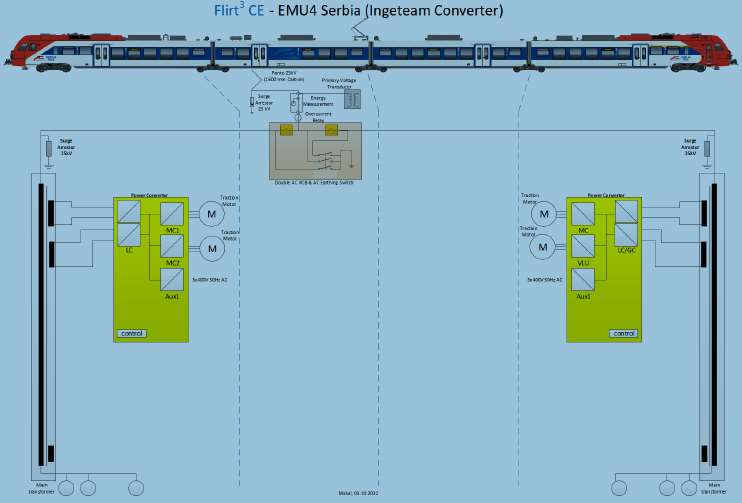Theoretical analysis using thermal efficiency concept in straight micro channel printed circuit heat exchanger
Abstract
The objective is to analyze the thermal and hydraulic performance in a micro channel straight printed circuit heat exchanger. Counterflow and parallel flow configurations were analyzed for water cooling using ethylene glycol-based fluid and platelet-shaped, non-spherical Boehmite alumina nanoparticles. The work presents results from applying a dimensionless theory that uses the concepts of thermal efficiency of heat exchangers and quantities associated with the second law of thermodynamics. Thermal efficiency, thermal effectiveness, thermal and viscous irreversibilities, thermodynamic Bejan number, and outlet water temperatures are presented in graph form. The data obtained allow us to conclude that the heat exchanger can work in a range of water and refrigerant flow rates below the design parameters. With the inclusion of nanoparticles with a volume fraction equal to 5.0%, the flow rates of the refrigerant fluid can be significantly reduced. The analysis performed shows that the use of nanoparticles improves the operational cost-benefit of the heat exchanger with a significant reduction in the hot water outlet temperature.
References
[1]Nogueira É, Machado HA. Thermal efficiency and second law of thermodynamics applied in a straight microchannel printed circuit heat exchanger. In: Proceedings of the 19th Brazilian Congress of Thermal Sciences and Engineering (ENCIT 2022); 6–10 November 2022; Bento Gonçalves-RS, Brazil.
[2]Seo JW, Kim YH, Kim D, et al. Heat transfer and pressure drop characteristics in straight microchannel of printed circuit heat exchangers. Entropy 2015; 17: 3438–3457. doi: 10.3390/e17053438
[3]Rosa P, Karayiannis TG, Collins MW. Single-phase heat transfer in microchannels: The importance of scaling effects. Applied Thermal Engineering 2009; 29(17–18): 3447–3468. doi: 10.1016/j.applthermaleng.2009.05.015
[4]Steinke ME, Kandlikar SG. Single-phase liquid heat transfer in microchannels. In: Proceedings of ICMM2005 3rd International Conference on Microchannels and Mini channel; 13–15 June 2005; Toronto, Canada. pp. 667–678.
[5]Katz A, Aakre SR, Anderson MH, Ranjan D. Experimental investigation of pressure drop and heat transfer in high-temperature supercritical CO2 and helium in a printed-circuit heat exchanger. International Journal of Heat and Mass Transfer 2021; 171: 121089. doi: 10.1016/j.ijheatmasstransfer.2021.121089
[6]Baik SJ, Kim SG, Son SM, Lee JI. Printed circuit heat exchanger design, analysis and experiment. In: Proceedings of the 16th International Topical Meeting on Nuclear Reactor Thermal Hydraulics (NURETH-16); 30 August–4 September 2015; Chicago, United States.
[7]Chai L, Tassou SA. A review of printed circuit heat exchangers for helium and supercritical CO2 Brayton cycles. Thermal Science and Engineering Progress 2020; 18: 100543. doi: 10.1016/j.tsep.2020.100543
[8]Zhao Z, Zhou Y, Ma X, et al. Numerical study on thermal hydraulic performance of supercritical LNG in zigzag-type channel PCHEs. Energies 2019; 12(3): 548. doi: 10.3390/en12030548
[9]Bhosale SS, Acharya AR. Review on applications of micro-channel heat exchanger. International Research Journal of Engineering and Technology 2020; 7(3).
[10]Tang LH, Yang BH, Pan J, Sundén B. Thermal performance analysis in a zigzag channel printed circuit heat exchanger under different conditions. Heat Transfer Engineering 2022; 43(7): 567–583. doi: 10.1080/01457632.2021.1896832
[11]Timofeeva EV, Routbort JL, Singh D. Particle shape effects on thermophysical properties of alumina nanofluids. Journal of Applied Physics 2009; 106(1): 014304. doi: 10.1063/1.3155999
[12]Monfared M, Shahsavar A, Bahrebar MR. Second law analysis of turbulent convection flow of Boehmite alumina nanofluid inside a double-pipe heat exchanger considering various shapes for nanoparticle. Journal of Thermal Analysis and Calorimetry 2019; 135(2): 1521–1532. doi: 10.1007/s10973-018-7708-7
[13]Nogueira É. Influence of nanoparticles shapes of Boehmite alumina on the thermal performance of a straight microchannel printed circuit heat exchanger. Journal of Metallic Material Research 2022; 5(1): 8–24. doi: 10.30564/jmmr.v5i1.4364
[14]Bejan A. The thermodynamic design of heat and mass transfer processes and devices. International Journal of Heat and Fluid Flow 1987; 8(4): 258–276. doi: 10.1016/0142-727X(87)90062-2
[15]Fakheri A. Heat exchanger efficiency. Journal of Heat Transfer 2007; 129(9): 1268–1276. doi: 10.1115/1.2739620
[16]Nogueira E. Thermal performance in heat exchangers by the irreversibility, effectiveness, and efficiency concepts using nanofluids. Journal of Engineering Sciences 2020; 7(2): F1–F7. doi: 10.21272/jes.2020.7(2).f1
Copyright (c) 2023 Élcio Nogueira, Humberto Araújo Machado

This work is licensed under a Creative Commons Attribution 4.0 International License.





.png)


